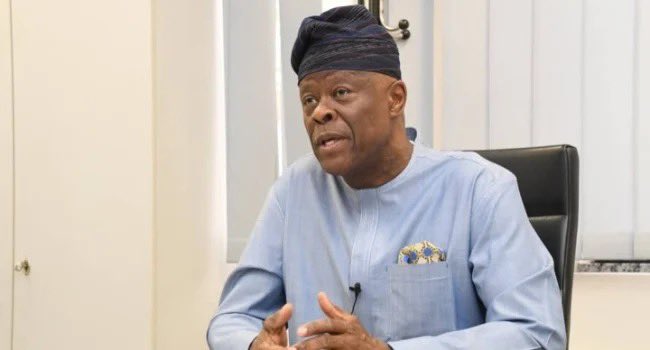The Minister of Finance and Coordinating Minister of the Economy, Mr. Wale Edun, revealed over the weekend that Nigeria requires an annual investment of $20 billion to achieve a 7% economic growth rate by 2027.
He made this statement while presenting the implementation of the Presidential Intervention projects in Abuja.
Mr. Edun explained that the government would contribute part of the required funds, focusing heavily on infrastructure investments, while the private sector would also be expected to invest, taking advantage of the business-friendly environment.
He said, “We’re looking for production investment across all sectors. $20 billion in investment is our target. We can’t have a target that falls short of what will meaningfully improve the lives of Nigerians.”
He further stated, “The $20 billion investment we are targeting is crucial for achieving an economy growing over 6% by 2027.”
The Minister highlighted the government’s role in funding critical infrastructure projects, such as the ongoing Sokoto-Badagry Highway and the Lagos to Calabar Superhighway. These projects, he said, would improve logistics, enable access to agricultural and irrigation areas, and facilitate the development of dams.
“The government has a role to play, and where will the government get its money? It will come from increased revenue generated by a growing economy,” he explained.
“A more efficient tax collection system will generate additional revenue. That’s why the Tax Reform Bills currently before Parliament must be passed and implemented effectively. They must be robust so that the Nigerian economy can truly benefit.”
Responding to a question about the federal government’s food import initiative, Mr. Edun revealed that the programme was reviewed after the government received a flood of import applications. He disclosed that about 500,000 metric tonnes of wheat and maize were imported under the initiative, but did not provide details on how the importers were selected.
He clarified that the government had decided to scale back the initiative to avoid undermining the gains made in local food production by the agricultural sector.
The minister also defended the progress of the current administration, asserting that the country was in a better position than when President Tinubu took office.
“In just 18 months, His Excellency, President Bola Ahmed Tinubu has already made positive changes to Nigeria. He has set the economy on the right path and put in place a framework that is beginning to show results,” he said. “Nigeria is no longer a place where someone looking to succeed in business, commerce, or entrepreneurship wakes up targeting foreign exchange allocations from the Central Bank at below market rates as the quickest way to grow their wealth.”
On the external sector, Mr. Edun reported a significant increase in Nigeria’s foreign reserves, which had risen by $10 billion over the past 12 months, from $32 billion to $42 billion. He attributed this to the country’s current account surplus, noting that Nigeria was now exporting more than it was importing.
Additionally, he praised the efforts of the Governor of the Central Bank of Nigeria, Mr. Olayemi Cardoso, to attract foreign portfolio investment and increase remittances from Nigerians abroad.
“Our current account balance now stands at 11.5% of GDP. These are significant improvements, and it’s important to acknowledge them,” the minister said. “While the numbers are important, the most crucial improvement is what people feel in their daily lives. Often, these improvements first show up in the numbers and later in people’s pockets.”
Mr. Edun concluded by emphasising the need for increased domestic production to meet both local demand and export needs, stressing that this would help reduce reliance on imports and facilitate more formal, legal exports.

